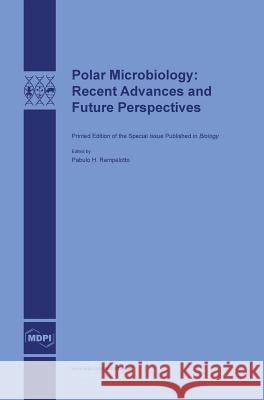Polar Microbiology: Recent Advances and Future Perspectives » książka
Polar Microbiology: Recent Advances and Future Perspectives
ISBN-13: 9783038421757 / Angielski / Twarda / 2016 / 466 str.
Polar microbiology is a promising field of research that can tell us much about the
fundamental features of life. The microorganisms that inhabit Arctic and Antarctic
environments are important not only because of the unique species they represent, but also
because of their diverse and unusual physiological and biochemical properties. Furthermore,
microorganisms living in Polar Regions provide useful models for general questions in
ecology and evolutionary biology given the reduced complexity of their ecosystems, the
relative absence of confounding effects associated with higher plants or animals, and the
severe biological constraints imposed by the polar environment. In terms of applied science,
the unique cold-adapted enzymes and other molecules of polar microorganisms provide
numerous opportunities for biotechnological development. Another compelling reason to
study polar microbial ecosystems is the fact that they are likely to be among the ecosystems
most strongly affected by global change. For these reasons, polar microbiology is a thriving
branch of science with the potential to provide new insights into a wide range of basic and
applied issues in biological science. In this context, it is timely to review and highlight the
progress so far and discuss exciting future perspectives. In this special issue, some of the
leaders in the field describe their work, ideas and findings.
Polar microbiology is a promising field of research that can tell us much about the
fundamental features of life. The microorganisms that inhabit Arctic and Antarctic
environments are important not only because of the unique species they represent, but also
because of their diverse and unusual physiological and biochemical properties. Furthermore,
microorganisms living in Polar Regions provide useful models for general questions in
ecology and evolutionary biology given the reduced complexity of their ecosystems, the
relative absence of confounding effects associated with higher plants or animals, and the
severe biological constraints imposed by the polar environment. In terms of applied science,
the unique cold-adapted enzymes and other molecules of polar microorganisms provide
numerous opportunities for biotechnological development. Another compelling reason to
study polar microbial ecosystems is the fact that they are likely to be among the ecosystems
most strongly affected by global change. For these reasons, polar microbiology is a thriving
branch of science with the potential to provide new insights into a wide range of basic and
applied issues in biological science. In this context, it is timely to review and highlight the
progress so far and discuss exciting future perspectives. In this special issue, some of the
leaders in the field describe their work, ideas and findings.











